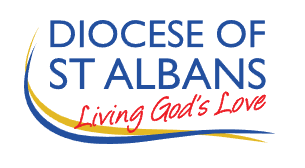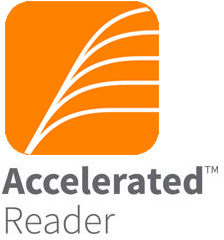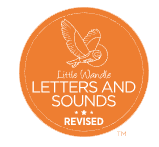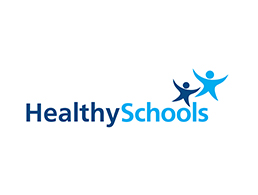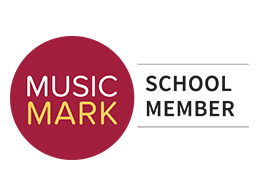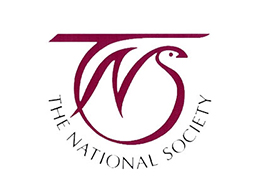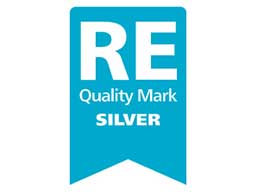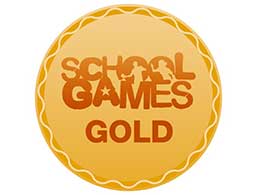Curriculum
Toddington St. George C of E School Curriculum Policy
Rationale: This policy lays out the rationale behind our curriculum, from Nursery to Year 4, our approach to implementing it and its intended impact. It explains what we want children to know and be able to do at each stage of their education.
Vision For Education In Our Church School: At Toddington St. George, our curriculum is underpinned by our mission statement, core values and vision for education.
Let Your Light Shine Matthew 5:15
St. George’s is a loving and caring community and our Christian values are at the heart of everything we do.
Every child and adult in our community is wanted, accepted and respected.
God makes each person unique in many special ways. Each and every person is precious, bringing special distinctiveness, gifts and talents to the world, things that no one else can; at St. George’s we call these our sparks.
Our vision, inspired by the gospel according to Matthew, is that together, we light our sparks and let our light shine, living God’s love. At St. George’s we are creating a deeply Christian school for our whole community.
Lighting A Spark In Everyone
Our curriculum intends to encompass our school values:
Curriculum Intent: We follow the National Curriculum, adapting and extending it to meet the particular needs of our children and families. The National Curriculum lays out the range of subjects we must teach and sets the standards children are expected to reach at the end of each key stage of learning. We want to ensure that our children make progress, and know more, do more and remember more, so we have taken the following approaches detailed in this policy.
We firmly believe in our curriculum that promotes the holistic development of the individual child, entwining positive personal wellbeing with high aspiration for academic success. Our curriculum is designed to excite, promote and sustain children’s natural curiosity in learning in a meaningful and purposeful way. We develop confident learners for life, who are able to embrace new challenges and experiences.
It is important to us that every person feels wanted, accepted and respected and therefore we have intentionally designed our curriculum to ensure that every child sees themselves and their families represented.
Curriculum Implementation: For the wider curriculum we use a project-based approach, balancing knowledge rich learning alongside explicit development of skills, as we believe that this supports children in making strong prior knowledge links without overloading their working memory, and supports new learning sticking to their long term memory.
Children are at the heart of our curriculum design. We have chosen to use Curriculum Maestro, because it supports teachers in planning, resourcing and tracking the National Curriculum, and offers breadth and depth through the project cycle: Engage, Develop, Innovate, Express. It provides children with a progressive, integrated and exciting curriculum with a sense of community. Each lesson we ensure children know whether they are being historians, geographers, designers or artists.
Engage, Develop, Innovate, Express
The four cornerstones of learning provides the structure for every project. We call these Engage, Develop, Innovate, and Express. We believe this pedagogy reflects the best way children learn and is rooted in a variety of different educational approaches and research.
- Engage – hook children in with a memorable experience.
- Develop – allow children time to gather the skills and knowledge they need to develop a deep understanding.
- Innovate – offer creative experiences that allow children to apply their skills, knowledge and understanding.
- Express – provide the space and time for reflecting, evaluating, and celebrating learning.
Through the use of Curriculum Maestro, the implementation of subjects centres around ‘big ideas’ to sculpt and shape the curriculum. These ‘big ideas’ are the foundations of each subject and ensure progression, breadth and balance.
Big Ideas
| Humankind | understanding what it means to be human and how human behaviour has shaped the world |
| Nature | understanding the complexities of the plant and animal species that inhabit the world |
| Processes | understanding the many dynamic and physical processes that shape the world |
| Place | understanding the visual, cultural, social, and environmental aspects of places around the world |
| Creativity | understanding the creative process and how every day and exceptional creativity can shape the world |
| Comparison | understanding how and why things are the same or different |
| Investigations | understanding the importance of investigation and how this has led to significant change in the world |
| Significance | understanding why significant people, places, events and inventions matter and how they have shaped the world |
| Materials | understanding the properties of all matter, living and non-living |
| Change | understanding why and how things have changed over time |
For English, Maths, Science, R.E, PSHE, Computing, MFL and PE, we have chosen a subject specific approach, to ensure that breadth and depth are achieved in these fundamental areas of learning.
We follow the Little Wandle Letters and Sounds Revised phonics programme from Nursery to Year 2. Phonics is taught daily in a sequential order. All members of staff delivering the phonics programme are trained in delivery and have continual professional development throughout the year. Any child in KS2 who requires additional phonics intervention will also receive this through ‘keep up’ sessions.
We believe that children will flourish academically when their Spiritual, Moral, Social and Cultural development needs are also met. The profile of our school and the community that we serve is not representative of wider Britain and the world, and we are committed to broadening children’s experience of different cultures, religions, heritage and families. Therefore, our curriculum is further designed to ensure that every child in our school feels wanted, accepted and respected, and identifies with and sees themselves represented in our curriculum.
Details of each class’s curriculum can be found on their year group page in the format of a Knowledge Organiser, long term plan and curriculum leaflet.
By bringing together high aspirations for academic success and our Big Ideas, we are Lighting A Spark In every child, so that they can, Let Their Light Shine (Matthew 5:15).
Curriculum Impact: At Toddington St George, children are assessed during every lesson, which enables our teachers to plan the next steps for each child. Teachers assess against the learning objectives and the basic skill requirements for each year group by providing live feedback throughout the lesson. This enables pupils to make progress within individual lessons and over time.
Children are expected to make good or better progress in all subjects and this is reported to parents and carers at parents’ evenings, mid-year and end of year reports.
Toddington St Georges uses triangulated monitoring throughout the year to gauge the impact of curriculum design. Senior Leaders and Subject Leaders monitor individual subjects by: reviewing learning, evaluating pupil voice, providing feedback to move practice forward, celebrating positives and highlighting areas of development that through collaboration and continued professional development are developed and strengthened.
Curriculum Maestro enables subject leaders to monitor coverage of subject areas across the school, so that teachers can plan to provide the greatest breadth and balance. These strategies enable teachers to plan for intervention and challenge within the wider curriculum.
We will measure the impact of our curriculum through:
Attainment and progress data
Attendance rates
Behaviour
Extra-curricular registers
Pupil questionnaires
Pupil voice
Parent questionnaire
Lesson observations and book looks
Curriculum review and sharing good practice with peers
Legislation and Guidance
This policy reflects the requirements for academies to provide a broad and balanced curriculum as per the Academies Act 2010, and the National Curriculum programmes of study which we have chosen to follow.
It also reflects requirements for inclusion and equality as set out in the Special Educational Needs and Disability Code of Practice 2014 and Equality Act 2010, and refers to curriculum-related expectations of governing boards set out in the Department for Education’s Governance Handbook.
This policy complies with our funding agreement and articles of association.
In addition, this policy acknowledges the requirements for promoting the learning and development of children set out in the Early Years Foundation Stage (EYFS) statutory framework.
Roles and responsibilities: The Governing Board
The governing board will monitor the effectiveness of this policy and hold the headteacher to account for its implementation. The governing board will also ensure that:
● A robust framework is in place for setting curriculum priorities and aspirational targets.
● The school is complying with its funding agreement and teaching a “broad and balanced curriculum” which includes English, maths, science and (subject to providing the right to withdraw) religious education, and enough teaching time is provided for pupils to cover the requirements of the funding agreement.
● Proper provision is made for pupils with different abilities and needs, including children with special educational needs (SEN).
Roles and responsibilities: The Headteacher
The headteacher is responsible for ensuring that this policy is adhered to, and that:
● All required elements of the curriculum, and those subjects which the school chooses to offer, have aims and objectives which reflect the aims of the school and indicate how the needs of individual pupils will be met.
● The amount of time provided for teaching the required elements of the curriculum is adequate and is reviewed by the governing board.
● They manage requests to withdraw children from curriculum subjects, where appropriate.
● The school’s procedures for assessment meet all legal requirements.
● The governing board is fully involved in decision-making processes that relate to the breadth and balance of the curriculum.
● The governing board is advised on whole-school targets in order to make informed decisions.
● Proper provision is in place for pupils with different abilities and needs, including children with SEN.
Inclusion
Teachers set high expectations for all pupils. They will use appropriate assessment to set ambitious targets and plan challenging work for all groups, including:
● More able pupils
● Pupils with low prior attainment
● Pupils from disadvantaged backgrounds
● Pupils with SEN
● Pupils with English as an additional language (EAL)
● Teachers will plan lessons so that pupils with SEN and/or disabilities can study every National Curriculum subject, wherever possible, and ensure that there are no barriers to every pupil achieving.
Teachers will also take account of the needs of pupils whose first language is not English. Lessons will be planned so that teaching opportunities help pupils to develop their English, and to support pupils to take part in all subjects.
Further information can be found in our statement of equality information and objectives, and in our SEN policy and information report.
Monitoring arrangements
Governors monitor whether the school is complying with its funding agreement and teaching a “broad and balanced curriculum” which includes the required subjects, through school visits, meetings with children and staff etc.
Links with other policies
This policy links to the following policies and procedures:
● EYFS policy
● Assessment policy
● SEN policy and information report
● Equality information and objectives
● Pupil Premium Policy
● Relationships and Sex Education Policy
● Teaching and Learning Policy
Date Reviewed July 2022
Next Review July 2023
Reviewed by Anna Heeley, Assistant Headteacher for Teaching and Learning
Curriculum Documents:
| Document | Download |
| Curriculum Policy | Download |
| Toddington St George Curriculum Overview | Download |
| English Writing Progression Map | Download |
| English Reading Progression Map | Download |
| Maths Progression Map | Download |
| Science Progression Map | Download |
| Computing Progression Map | Download |
| P.E. Progression Map | Download |
| R.E. Progression Map | Download |
| Art and Design Progression Map | Download |
| Design Technology Progression Map | Download |
| Music Progression Map | Download |
| History Progression Map | Download |
| Geography Progression Map | Download |
| M.F.L. Progression Map | Download |
| P.H.S.E. Progression Map | Download |
| Primary National Curriculum | Download |
| Parents Guide to the National Curriculum | Download |





